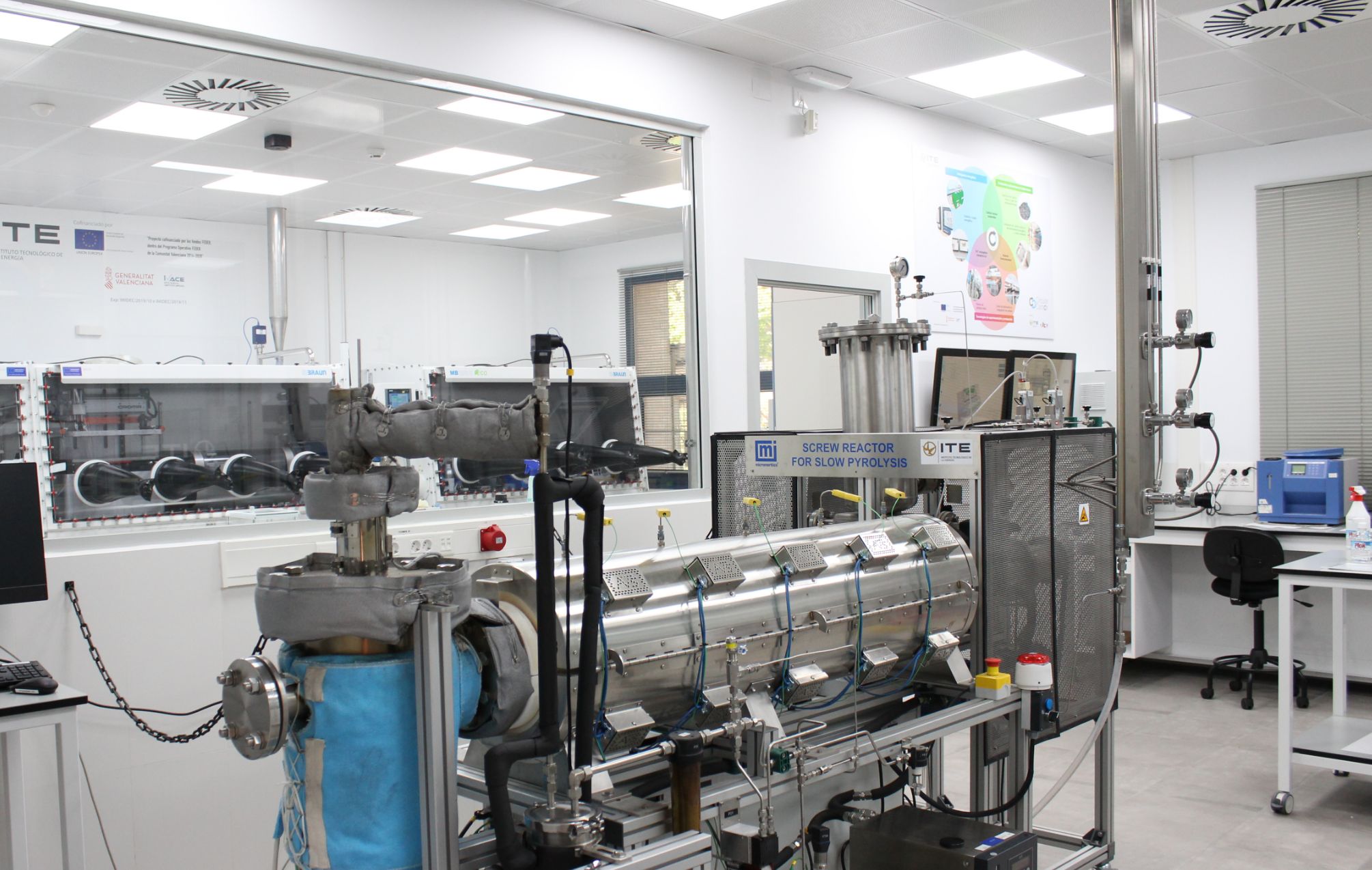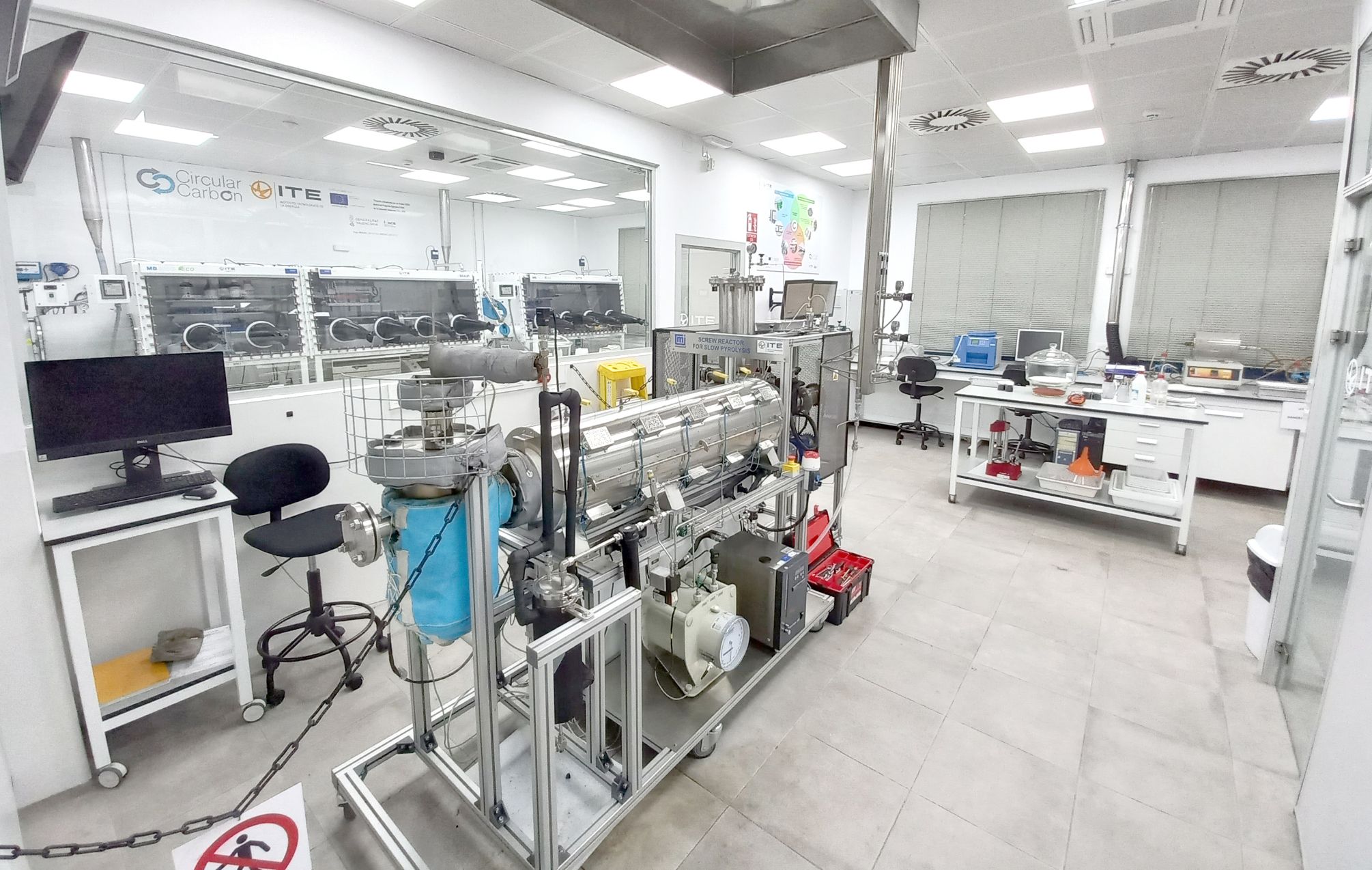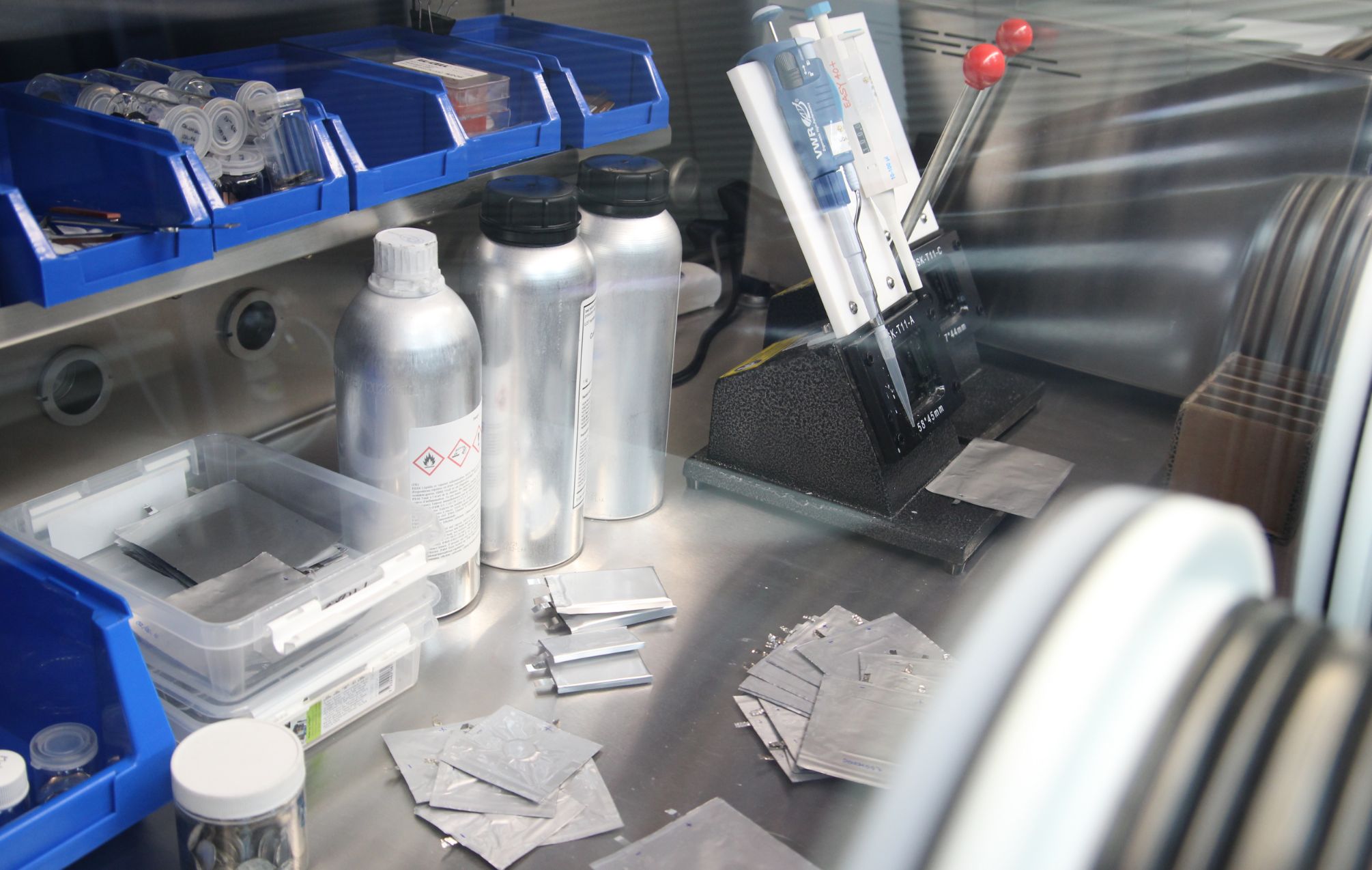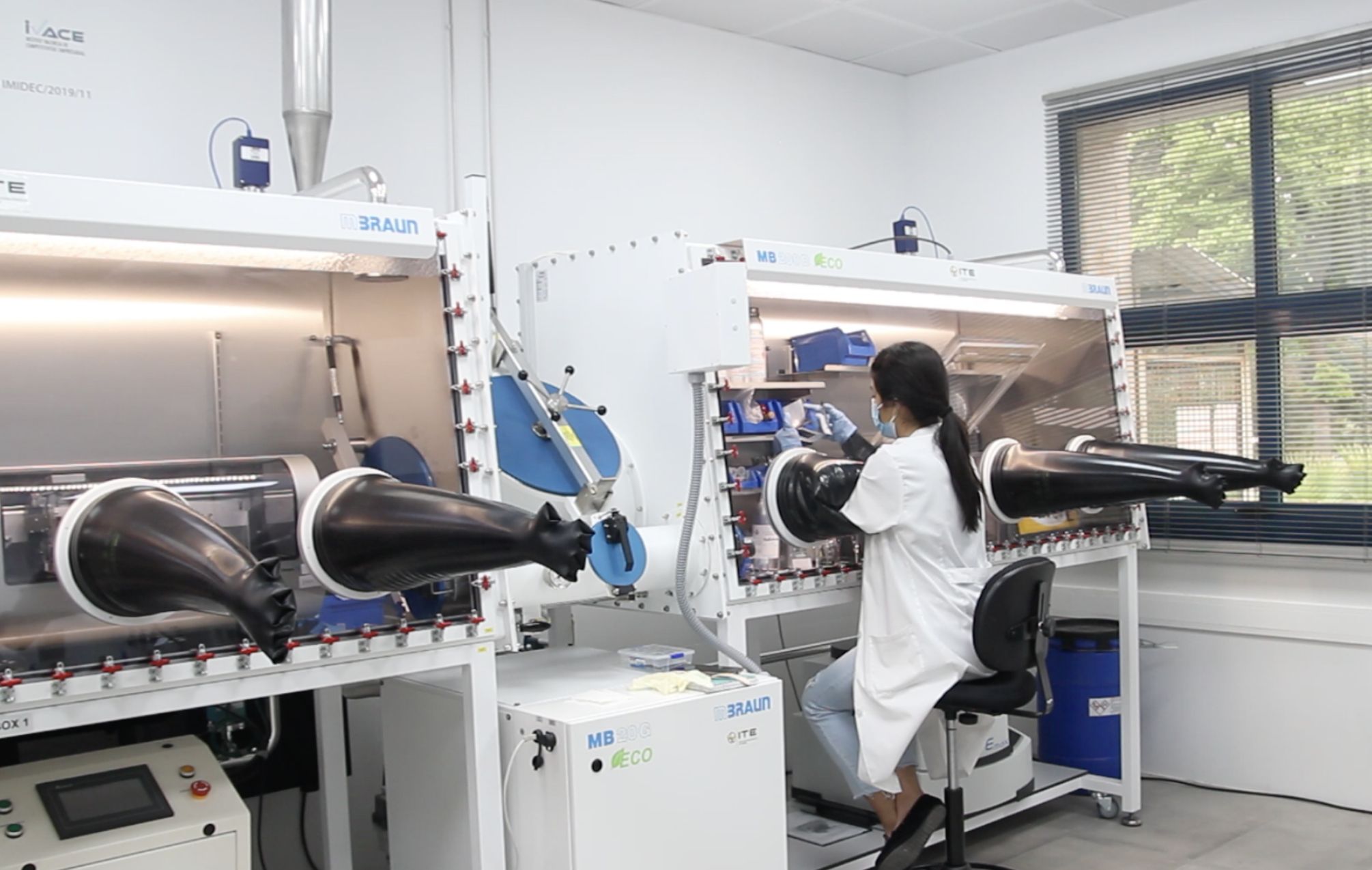At ITE, we maintain our commitment to the research and development of sustainable objectives. The circularity of the economy, decarbonization and the reduction of waste, as well as the implementation of alternative energies are some of our bases for the development of the Circular Carbon laboratory.
Given this scenario, ITE applies the principles of the circular economy to optimize resources through efficient and clean energy, as well as to boost the Valencian business fabric and improve its competitiveness.
Circular Carbon, which is funded by the Valencian Institute for Business Competitiveness (IVACE) of the Generalitat Valenciana, proposes a completely different approach that stimulates economic growth, reduces excess consumption of resources and the creation of employment opportunities without compromising the environment.
Thanks to the greatest technological innovation, ITE laboratories carry out two of the processes related to pilot design by which activated carbon is obtained.
Activated carbon is used in more and more sectors, such as medicine, pharmaceuticals, or in food and beverage processing. The problem is that it is a product with high added value due to its various functions, but obtaining it is not energy and environmentally sustainable.
To this end, abundant waste from the Valencian Community is used and thermochemical techniques are used, as well as the recovery of bio-oils and biogases for later use in energy resources.
The storage of electrical energy is essential for the energy transition and decarbonization. For this reason, the objective of this laboratory is focused on the manufacture of materials and electrodes for batteries. To this end, the manufacture and integration of next-generation battery cell electrodes has been designed and implemented, using screen printing and printing techniques thanks to sustainable coal. It is aimed at developing processes for cell and electrode components, applying an innovative design approach to sustainability research.
In addition, ITE and the Institute of Ceramic Technology are launching the process that consists of the use of water treatment processes and emissions from relevant sectors of the coal obtained.
We are responsible for implementing a digital system for collecting, processing and analysing energy data to assess the impact of the energy footprint. This is done in order to evaluate the situation of the project in order to ensure that coal is energy, as well as that its use is environmentally sustainable. The application of activated carbon from biomass to the manufacture of battery electrodes represents a great advance for the environment, as well as the circularity of the economy.




